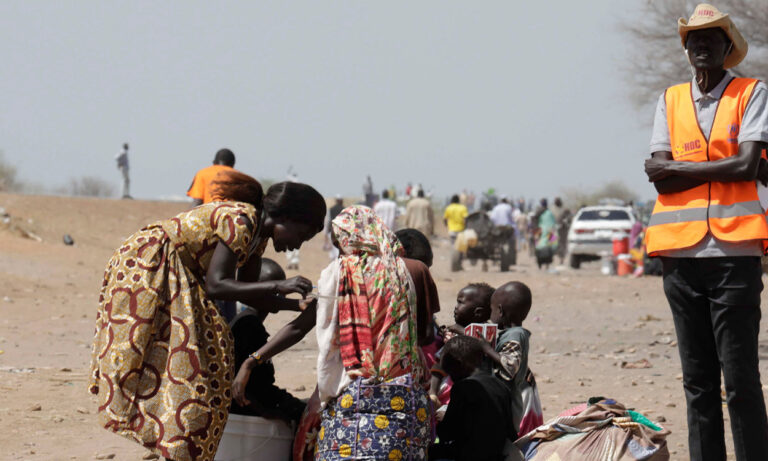UK gov needs to recreate Homes for Ukraine scheme for Sudanese refugees, says campaign founder

In 2011, South Sudan gained independence, ending Africa’s longest running civil war; However, in 2013, a renewed conflict erupted, leaving millions displaced and in desperate need of basic necessities. Despite a peace deal in 2018, factional violence persists, affecting communities across the country.
Critics of the British government have pointed out the insufficiency of support provided by the UK in addressing the Sudanese refugee crisis. Despite assurances, the absence of concrete action has left vulnerable individuals in desperate situations. The call to replicate the Homes for Ukraine scheme for Sudanese refugees highlights the government’s failure to address the pressing humanitarian needs of those escaping persecution and violence, and the inherent bias behind the scheme.
In the heart of a humanitarian crisis, pregnant Sudanese refugees in Chad are facing an unimaginable ordeal as they give birth without adequate shelter or medical support. SCREENSHOT sat down with Mariam, a 29-year-old Sudanese mother hailing from Khartoum with family in the UK, who delved into the struggle of expecting mothers in Sudan, as well as highlighting their resilience amid dire circumstances. Her account of the hardships endured by her community is enough to send shivers down your spine.
Mariam told us that she lost her cousin, “We couldn’t even bury her, they threw her in a massive grave with other bodies inside. We found that out almost three months after her death. Our lives are meaningless for many, they can’t see or hear the bombs, they can’t see the death, so it’s better sometimes to close your eyes—at least until the enemy comes knocking on your door.”
This tragic story sheds light on the urgent need for assistance and draws attention to the plight of pregnant refugees who are navigating the challenges of giving birth in the middle of a war zone.
Amid the turmoil in Sudan, was a pregnant British woman who, alongside her family, found themselves stranded in the war-torn country, fearing she could give birth at any moment. Their story, along with the accounts of other women, further underscores the urgent need for safe routes and equitable assistance for refugees coming from the country.
Dr Krish Kandiah, director of the Sanctuary Foundation, which was instrumental in matching many British hosts with Ukrainian refugees, is now imploring the British government to extend the scheme to Sudanese refugees.
Thankfully, when it comes to the solidarity of other British citizens, there are still those who desire to do good. Speaking to The Guardian about Kandiah’s initiative, Cathy Ashley, a charity chief executive, and Mohammed Amin, a Sudanese refugee, both advocated for the establishment of safe routes for refugees from the Northeast African country.
Ashley explained that she previously hosted a young Ukrainian woman and now wishes to extend the same offer to Sudanese people, recognising the gravity of their plight. “I’ve enjoyed having her as part of our home and I want to be able to make that same offer available to those fleeing persecution in Sudan, because their need is as great,” she told the publication. “Without these safe routes, people are forced into terrifically desperate situations.”
Amin appealed for support for his sister and nephew, trapped in dire conditions in the country’s capital. Algaly Saeed, a long-time Sudanese resident in Britain, shared the same plea, yearning to reunite with his adult son. “All we ask is for the British people to help us like they did Ukrainians,” he said.
Kandiah’s proposal calls for an equitable method of assisting refugees. It is crucial to extend the same generosity of spirit and open hospitality to Sudanese people, in light of the 173,500 refugees who have successfully been hosted in people’s houses through the Homes for Ukraine scheme.
Stories like the ones of Mariam, Ashley, Amin, and Saeed remind us of our shared humanity and the transformative power of opening our hearts and homes to those in need. By embracing the opportunity to assist Sudanese refugees, Britain can demonstrate its commitment to humanitarian values.
As the voices advocating for the Homes for Sudan scheme grow louder, it’s essential for the UK government to work towards establishing safe routes and visa programmes that facilitate the integration of Sudanese refugees into our society.





